Course Brief
Unit Abstract
Engineering is a discipline that uses scientific theory to design, develop or maintain structures, machines, systems, and processes. Engineers are therefore required to have a broad knowledge of the science that is applicable to the industry around them.
This unit introduces students to the fundamental laws and applications of the physical sciences within engineering and how to apply this knowledge to find solutions to a variety of engineering problems.
Among the topics included in this unit are: international system of units,
interpreting data, static and dynamic forces, fluid mechanics and thermodynamics,material properties and failure, and A.C./D.C. circuit theories.
On successful completion of this unit students will be able to interpret and present qualitative and quantitative data using computer software, calculate unknown parameters within mechanical systems, explain a variety of material properties and use electromagnetic theory in an applied context.
- This course is offered in 45 hours.
-
BTEC Higher National Diploma (HND) in Engineering (Electrical and Electronic Engineering)
The Pearson BTEC Higher National Diploma (HND) in Engineering (Electrical and Electronic Engineering) will develop students into highly trained, competent professionals, who are able to meet the demands of employers in the various engineering sectors.
This qualification also serves as the next step for students completing the SBCS Diploma in Electrical and Mechanical Engineering Technology programme and are interested in pursuing the BEng (Hons) in Electrical and Electronic Engineering (Technology).
Why choose the HND in Engineering (Electrical and Electronic Engineering)?
- Recognition: This is an Internationally recognized qualification, recognized in more than 70 countries worldwide.
- Final Year Entry: Graduates of this programme gain direct access to the final year of the University of Greenwich's B.Eng. in Electrical and Electronic Engineering (Technology) programme offered at SBCS, Champs Fleurs campus.
- Career-focused: The curriculum was developed to meet the needs of the current marketplace after consultation with employers, students, and professional bodies.
- Practical hands-on training: Emphasis is placed on practical training and the application of the knowledge taught.
Why study Electrical and Electronic Engineering at SBCS?
- Instructors are certified, highly skilled and experienced practitioners who bring their knowledge and work experience to the classroom.
- Modern, fully equipped labs. You learn using the same equipment you will encounter in the field.
- Convenient class schedules. Work, Earn and Study at the same time. Classes are offered on a part-time basis, which allows working individuals to balance their work and educational needs.
Electrical and Electronic Engineering promo video

Our Labs
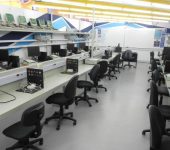
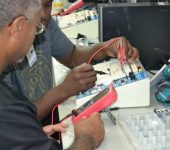
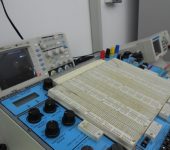
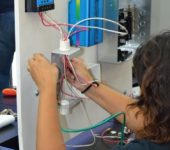
Our Campus



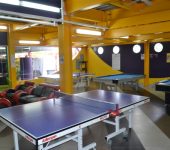
Schedule & Fees
The next intake for this offering will be in January 2025.
For more details on fees and courses Download the Programme Brief
FEE AMOUNT NOTE SBCS Registration Fee TT$850 each semester
Payable upon registration every semester (for 6 semesters) Tuition Fee TT$2,200 (per 15 credit module)
TT$4,400 (per 30 credit module)
Total Tuition Fee over 2 years: TT$35,200 BTEC Registration and Annual Fees £550
Payable by: February, 2025
Please note: All information provided is subject to change without prior notice.
What's Next?